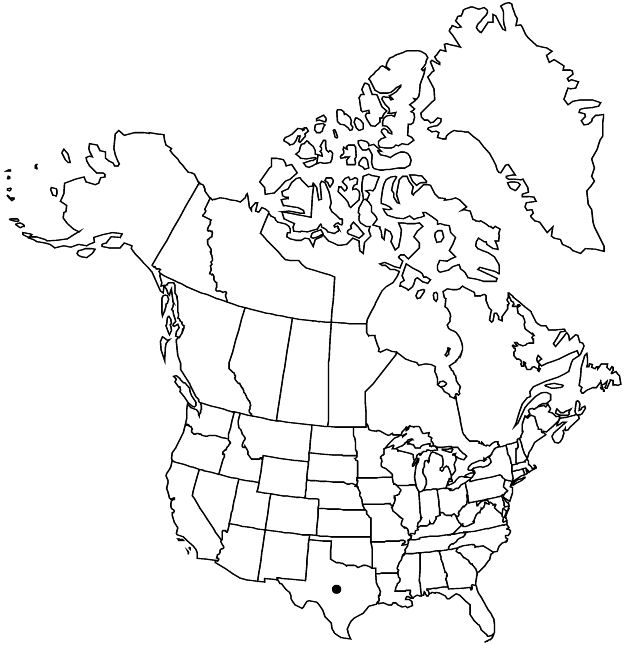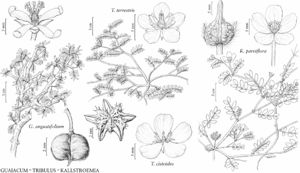Difference between revisions of "Guaiacum angustifolium"
Mem. Tour N. Mexico, 113. 1848.
FNA>Volume Importer |
FNA>Volume Importer |
||
| Line 55: | Line 55: | ||
|publication year=1848 | |publication year=1848 | ||
|special status=Selected by author to be illustrated | |special status=Selected by author to be illustrated | ||
| − | |source xml=https://jpend@bitbucket.org/aafc-mbb/fna-data-curation.git/src/ | + | |source xml=https://jpend@bitbucket.org/aafc-mbb/fna-data-curation.git/src/f6b125a955440c0872999024f038d74684f65921/coarse_grained_fna_xml/V12/V12_988.xml |
|genus=Guaiacum | |genus=Guaiacum | ||
|species=Guaiacum angustifolium | |species=Guaiacum angustifolium | ||
Revision as of 19:22, 24 September 2019
Shrubs or trees, to 3(–7) m; trunk well defined, to 0.3 m diam.; bark fissured vertically; branches many, spreading or straggling, knotty; crown diffuse. Leaves opposite or fascicled, 1–3 cm, folded at night and often also in heat of day; stipules persistent, subulate, 1 mm, apex acute, somewhat spinescent, glabrous; petiole absent or nearly so; leaflets 8–16, dark green, linear-oblong to linear-spatulate, 5–15 × 2–3 mm, apex obtuse, coriaceous, surfaces reticulate. Pedicels hairy. Flowers axillary, mostly solitary, sometimes clustered, 1.2–2 cm diam.; sepals (4–)5, obovate, to 5 mm, outer smaller; petals (4–)5, usually blue to purple, rarely white, obovate to elliptic, 6–10 × 2–3 mm, base short-clawed, apex often notched; stamens (8–)10, shorter than petals; filaments each with small crenate scale at base; ovary obcordiform, flattened, 2(–4)-lobed, 2(–4)-locular, hairy; style subulate. Capsules becoming orange, obcordiform, flattened, 10–20 mm diam., 2(–4)-lobed, 2(–4)-locular, ± 2(–4)-winged, apex abruptly attenuate-apiculate, reticulate, hairy. Seeds yellowish brown, ovoid to reniform, 10–11 mm.
Phenology: Flowering Mar–Sep.
Habitat: Shrubby vegetation, limestone soils.
Elevation: 0–1200 m.
Distribution

Tex., Mexico (Chihuahua, Coahuila, Nuevo León, San Luis Potosí, Tamaulipas).
Discussion
Guaiacum angustifolium occurs in southern, central, and western Texas. The root bark is used as a source of soap, and root extracts are used in folk medicine to treat various diseases. The stems are used for fence posts, tool handles, and firewood.
Selected References
None.
